
Rhyme has created your guideline to saving ink. Here are some tips and tricks to extend the life of your toner cartridges to maximize the use for greater value and savings.
Think Before You Print.
- Proofread and correct projects before they’re printed
- Consider email copies instead of printing hard copies
- Change your printing resolution from the highest quality (which tends to be the default) to the lowest quality when quality does not matter. The lowest quality is often called “draft” or “grayscale”. These options use less ink and even in draft mode, the quality is acceptable if you have a good printer. Reserve the best printing for final copies and items being presented in professional settings, rather than internal copies being filed.
Smart Inventory Management
Don’t overstock supplies. We often find instances of a stockpile of supplies that often go unused or dry up from being stored too long. An effective supply reorder strategy can eliminate this issue, saving you money. By ordering your toner and supplies with Rhyme, items are shipped next business day delivery when the order is placed by 2:00 PM CT. Rhyme also offers Managed Print Services, where we monitor your usage and automate toner shipment when it is needed.
Storage and Installation
How you handle and store cartridges has a huge impact on how long they last. Correct storage and installation of toner cartridges is important to prevent clumping, helping to avoid service codes or copy quality issues.
Toner cartridges should be stored at room temperature, between 50 - 77, in a dry area out of direct sunlight or excessive heat and undisturbed by pests. Leave ink or toner cartridges sealed in their packaging until you plan to use it. An opened printer cartridge reduces the shelf life by more than HALF!
Store and transport cartridges in a horizontal position; never store vertically.
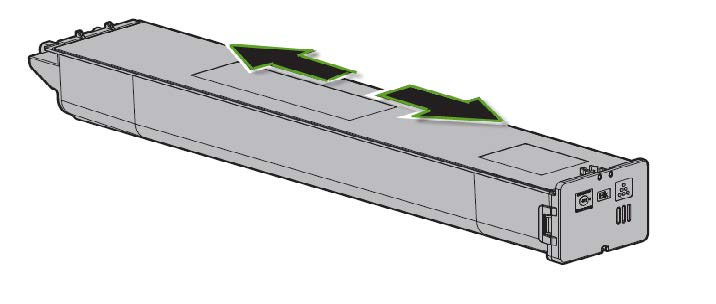
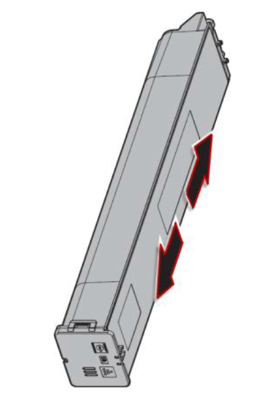
When installing a toner cartridge into the machine it is important to follow the correct steps to prepare the cartridge. There are different designs of toner cartridges that are used and depending on this the procedure to prepare them is different. When installing a toner cartridge, it is necessary to shake it so that any settling that may have occurred in shipping or storage is corrected; shaking the cartridge 5-6 times is adequate. Remember when shaking the cartridge never turn the cartridge upside down. Below are examples of the different designs of toner cartridges and the proper steps to prepare them for installation.
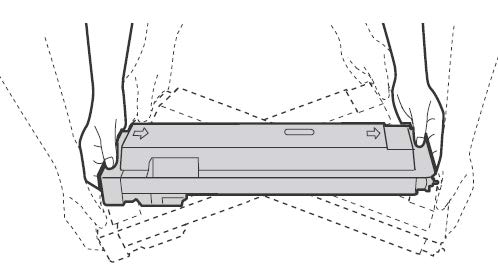
NOTE: When the arrows indicate a back and forth motion it is important the cartridge be kept horizontal while shaking.
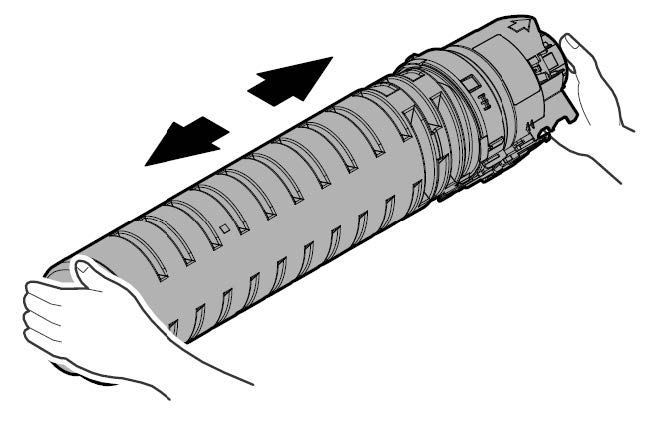
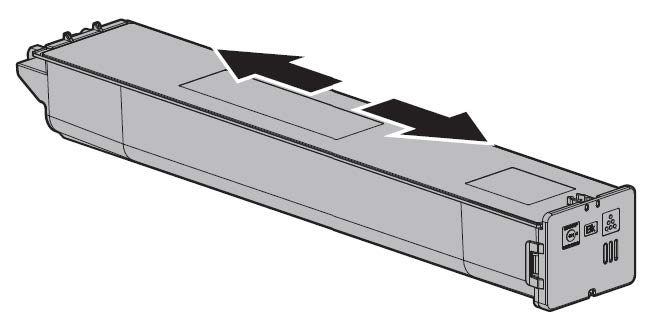
Steps to prepare each toner cartridge for installation are provided on the box that it comes in and can also be found in the installation instructions for each machine.
Use and Maintenance
Turn the printer off when it is not in use. Shutting off the printer using its "off" button caps the cartridges to prevent them from drying out or being clogged by dirt and debris.
Use the suggested type of paper. Make use of paper that is the least absorbent. Do not use thicker paper than your printer manual suggests. Using the wrong kind of printer paper can cause jams and use up more ink than necessary.
Perform regular printer cleanings. Dust the exterior of the printer at least once a week to keep particles from entering the interior of the chassis. Open the printer and spray compressed air into the crevices inside. This prevents dust, hair and other debris from getting into the ink cartridges and gumming it up.
Contact us with any questions you may have. Order your toner and supplies 24 hours a day, 7 days a week at Rhymebiz.com/Order-Toner.
For more information on how to set up a sustainable office see:
| Creating a More Sustainable Office |